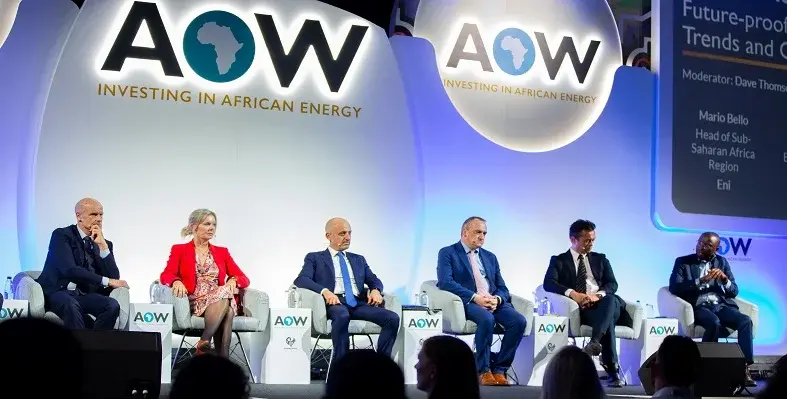At AOW: Investing in African Energy held in Cape Town form 7-10 October, a dedicated panel discussion considered how the continent can secure its future in a changing landscape
Specifically, the session was dedicated to the role of gas, with the pipeline of associated projects in the continent never being stronger. However, if Africa is to be competitive in a dynamic international gas market, it must ensure that it offers value. This means shaping an offer that meets the financial and environmental sustainability of stakeholders; gas investment propositions must be relevant and future-proof or global capital will not be forthcoming.
“Natural gas is at the centre of what we are doing in Africa,” commented Mario Bello, head of sub-Saharan Africa region at Eni. “It’s the cleanest fossil fuel, producing fewer emissions than coal, so it plays an important role as we transition to renewables… Floating LNG is the key to unlocking the region’s gas potential, making it easier and faster to develop offshore resources.”
A stable investment environment
Meanwhile, Paul Eardley-Taylor, head of oil & gas, southern Africa at Standard Bank, considered the financing challenge that remains a significant hurdle for projects. He emphasised the need for bankable projects that address investor concerns, particularly around sovereign risk. He also drew attention to the transformative potential of large-scale LNG projects and smaller, domestically-focused gas ventures, labelling the impact they could have in African markets “incalculable”.
Stressing the importance of a stable investment climate to attract international capital, Equinor’s senior vice president for Africa, Nina Birgitte Koch, said, “CO2 is the key criteria. It’s not just a ‘nice to have’ any more. I don’t think it’s possible to get capital to a big LNG project unless it’s highly competitive when it comes to CO2."
Tshepo Mokoka, Group COO of South Africa’s Central Energy Fund (CEF), raised the call for government intervention to address market failures and unlock investment. He outlined CEF's role in enabling critical gas infrastructure projects, such as the Romp pipeline and LNG import terminals. “We need to solve the market failure,” Mokoka surmised, highlighting the need for government-backed gas offtake agreements and risk-sharing mechanisms to attract private capital.
ExxonMobil’s executive director global, LNG marketing, Deri Irawan, emphasised the importance of a holistic approach to project development, considering not just the technical and economic aspects but also the social and political landscape. He commented on the need for strong partnerships and stakeholder engagement to ensure long-term project success. “It is insufficient to just bring a commodity to the doorstep. You also need to unlock that value chain.”
Gianluca Ciricugno, Africa director, enterprise customer solution at Baker Hughes, took the opportunity to stress the need for a long-term vision and collaboration between governments, investors, and technology providers. He urged, “It requires a broader vision, probably government and all the people around the table, with a long-term approach… and not just four-year terms.”














